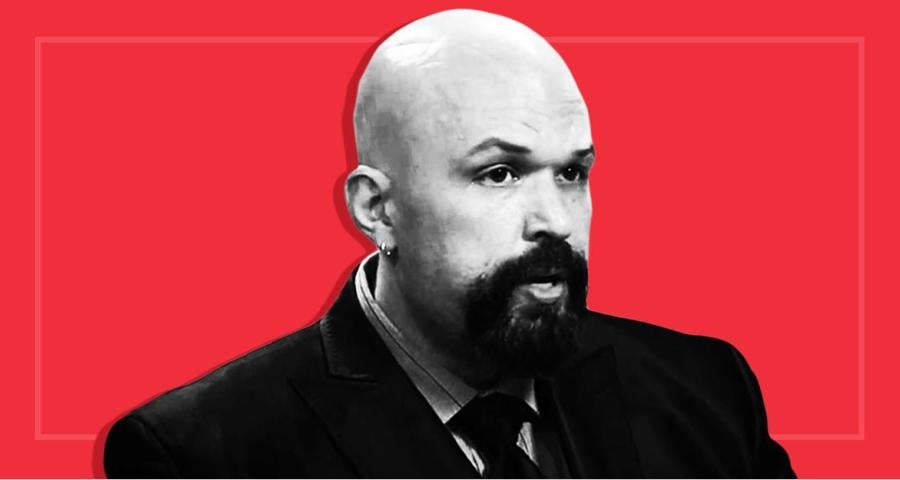UPDATE (4/5): After previously defending the hiring of former National Review writer Kevin Williamson as an exercise in ideological diversity, Atlantic Editor-in-Chief Jeffrey Goldberg announced on April 5 that the outlet was “parting ways” with Williamson. In particular, Goldberg noted that Williamson’s defense of his belief that those who have had abortions should be hanged -- made in a podcast uncovered by Media Matters yesterday -- “runs contrary to The Atlantic’s tradition of respectful, well-reasoned debate, and to the values of our workplace.”
Original article below.
The Atlantic recently sparked outrage after hiring former National Review writer Kevin Williamson -- who notoriously argued that “the law should treat abortion like any other homicide” with punishment including hanging. Although some have tried to make light of these comments, in reality, Williamson both defended and again promoted this belief during a September 2014 edition of his National Review podcast.
Williamson has a long history of producing problematic articles and commentary on a variety of topics, including on abortion, transgender people, and immigrants. Several of Williamson’s defenders have downplayed his history emphasizing, in particular, that Williamson’s tweets on abortion should not be taken seriously.
For example, the National Review’s David French alleged that Williamson was being subjected to “the unbelievably tedious ‘gotcha’ exercise of angry progressives combing through” his articles and “attempting to define” him by pointing to “a few paragraphs, a sentence here or there, or an ill-considered tweet or two.” Similarly, Mother Jones’ Kevin Drum wrote that although he found some of Williamson’s work problematic, he dismissed the severity of his comments on abortion, saying: “Lots of conservatives believe that abortion is murder. Williamson was willing to take this publicly to its logical endpoint -- that women who get abortions should be prosecuted for murder one -- but that act of folly is the only difference between him and every other right-wing pundit.”
As Slate reported, in a memo sent to staff at The Atlantic, even Editor-in-Chief Jeffrey Goldberg argued that he didn’t think “taking a person’s worst tweets, or assertions, in isolation is the best journalistic practice” and that he “would also prefer, all things being equal, to give people second chances and the opportunity to change. I’ve done this before in reference to extreme tweeting.” This sentiment was echoed by The New York Times’ much maligned columnist Bret Stephens who remarked in his column: “I jumped at your abortion comment, but for heaven’s sake, it was a tweet.”
However, as Williamson himself explained in a September 2014 episode of his National Review podcast, “Mad Dogs and Englishmen,” he had no problem defending his view that he supported capital punishment for those who had an abortion and that what he “had in mind was hanging.” Notably, although Williamson did hedge saying that he was “kind of squishy on capital punishment in general” he was “absolutely willing to see abortion treated like regular homicide under the criminal code.”
KEVIN WILLIAMSON (CO-HOST): And someone challenged me on my views on abortion, saying, “If you really thought it was a crime you would support things like life in prison, no parole, for treating it as a homicide.” And I do support that, in fact, as I wrote, what I had in mind was hanging.
[...]
WILLIAMSON: My broader point here is, of course, that I am a -- as you know I’m kind of squishy on capital punishment in general -- but that I’m absolutely willing to see abortion treated like a regular homicide under the criminal code, sure.
Later in the same episode of the podcast, Williamson continued that when it came to punishment for those who had abortions, he “would totally go with treating it like any other crime up to and including hanging” -- going so far as to say that he had “a soft spot for hanging as a form of capital punishment” because “if the state is going to do violence, let’s make it violence. Let’s not pretend like we’re doing something else.”
KEVIN WILLIAMSON (CO-HOST): But yeah, so when I was talking about, I would totally go with treating it like any other crime up to and including hanging -- which kind of, as I said, I’m kind of squishy about capital punishment in general, but I’ve got a soft spot for hanging as a form of capital punishment. I tend to think that things like lethal injection are a little too antiseptic --
CHARLES C.W. COOKE (CO-HOST): Sure, if you’re going to do it.
WILLIAMSON: -- quasi-medical -- yeah, if the state is going to do violence, let’s make it violence.
COOKE: I absolutely agree.
WILLIAMSON: Let’s not pretend like we’re doing something else.
[...]
WILLIAMSON: I think in some ways it’s worse than your typical murder. I mean, it’s absolutely premeditated --
COOKE: It’s clinical.
WILLIAMSON: --it’s clinical.
COOKE: Literally.
WILLIAMSON: Yes, it’s something that’s performed against the most vulnerable sort of people. And that’s the sort of thing we generally take into account in the sentencing of other murder cases. You know, murdering a four year old kid, is not the same as killing a 21-year-old guy.
